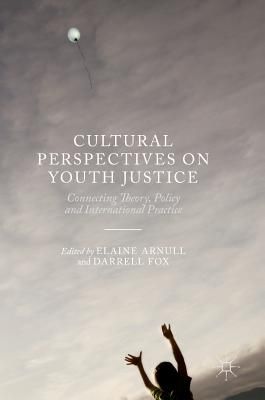Home
The Reproduction of Evil: A Clinical and Cultural Perspective
Loading Inventory...
Barnes and Noble
The Reproduction of Evil: A Clinical and Cultural Perspective
Current price: $170.00


Barnes and Noble
The Reproduction of Evil: A Clinical and Cultural Perspective
Current price: $170.00
Loading Inventory...
Size: Hardcover
*Product Information may vary - to confirm product availability, pricing, and additional information please contact Barnes and Noble
Why is it that victims of abuse so often become perpetrators, and what can psychoanalysis offer to these survivor-perpetrators, whose criminal conduct seems to transcend the possibilities of empathic psychoanalytic inquiry. In
The Reproduction of Evil
, Sue Grand engages these deeply troublesome issues in the belief that psychoanalysts can and should reclaim the study of what lies beyond ordinary human empathy. Her goal is to elucidate the link between traumatic memory and the perpetration of evil. To this end, she presents an interdisciplinary analysis, at once scholarly and passionate, of the ways in which families and cultures transform victims of malignant trauma into perpetrators of these very traumas on others. Through intensive case studies, Grand draws the reader into the world of the survivor-perpetrators who commit acts of child abuse, of incest, of racial persecution, even of homicide and genocide. By infusing psychoanalytic inquiry with cultural analysis and by supplementing clinical vignettes with well-chosen literary illustrations, Grand is able to convey the survivor-perpetrator's immediacy of experience in a manner that readers may find unsettling, even uncanny.
At the same time as Grand excavates the primitive internal meanings that accrue to acts of violence, she explores the broader cultural meanings of these acts. Delineating the forms of malignant dissociative contagion that link together perpetrator, victim, and passive bystander, she constructs a field theory of evil, according to which families and cultures are subject to a collusive dissociative process that potentiates evil at the same time as it erases evil's history. From this perspective, both the enactment of evil and the collusive appearance and disappearance of knowledge about evil have a common source: the catastrophic loneliness at the core of trauma survival. The reproductive cycle of evil is rooted in the trauma survivor's impossible desire to be known in this profound loneliness.
By interweaving psychoanalytic, sociohistorical, and literary perspectives, Grand fills a critical lacuna in the literature about trauma and its intergenerational transmission. Her analysis of the psychodynamic processes and cultural tensions that bind perpetrators, victims, and bystanders provides trenchant insights into the violence and fragmentation that beset our society. Essential reading for a wide clinical audience,
will also be powerfully informative for academic and lay readers interested in the intrapsychic, interpersonal, and cultural factors that account for the perpetuation of evil from generation to generation.


















